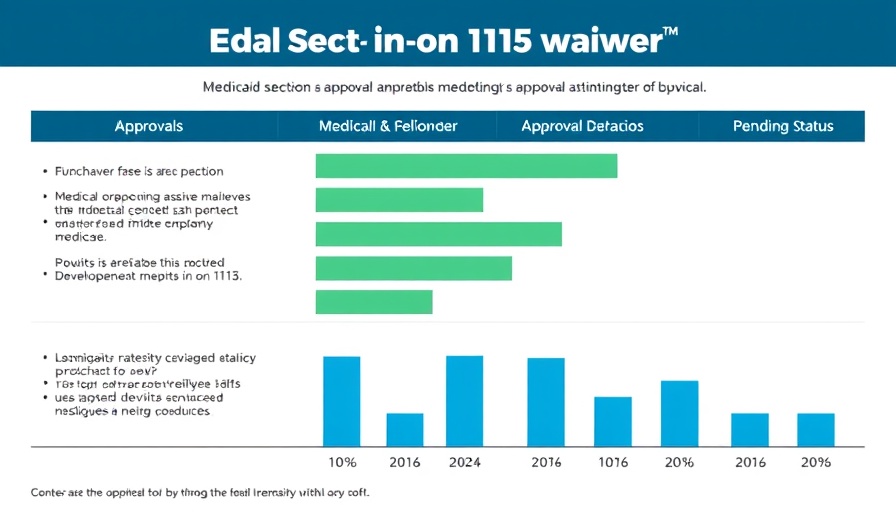
The Ongoing Impact of Medicaid Section 1115 Waivers
For millions of Americans, Medicaid plays a crucial role in accessing healthcare services, especially for low-income individuals and families. Section 1115 waivers allow states to test new approaches in Medicaid programs, which can lead to innovative solutions to pressing health issues. Understanding the differences in how states implement these waivers is essential for both insured and uninsured citizens who may rely on these programs for their health care needs.
Why Are Section 1115 Waivers Important?
Section 1115 waivers provide states with the flexibility to design programs that can better meet the needs of their populations. Many states have used these waivers to expand coverage, create work requirements, and address social determinants of health. This flexibility facilitates tailored healthcare solutions, which can significantly improve health outcomes for beneficiaries.
Expanding Access Through Innovation
Recent statistics reveal that several states have successfully utilized Section 1115 waivers to expand Medicaid eligibility, increase enrollment in health coverage, and improve health services. For instance, states like California and Michigan have innovated their programs to better target community-specific health concerns, leading to improved access to care for previously uninsured populations.
A Grassroots Perspective on Medicaid Changes
Emily Brooks, who specializes in uncovering local stories, emphasizes the importance of community voices in discussions about Medicaid waivers. "Behind every policy change, there's a story—a hardworking mother who can now take her child to see a doctor or an elderly neighbor who receives support for critical health needs. These waivers not only change statistics; they transform lives in meaningful ways," she shares, shedding light on the smile of hope each new approval can bring.
Challenges and Opportunities Ahead
While waivers offer opportunities for improvement, there are challenges ahead. Critics of the waiver programs often cite concerns about potential restrictions on coverage and services. Others fear that the emphasis on work requirements may inadvertently leave some individuals without necessary healthcare. It's crucial for citizens to remain informed and engaged in ongoing discussions regarding these changes, advocating for policies that truly benefit their communities.
The Road Ahead: Future Predictions and Trends
As we look to the future, trends indicate that more states will seek waivers to implement comprehensive healthcare solutions. The upcoming legislative sessions may see an increase in proposals aimed at expanding Medicaid programs further and employing innovative strategies to improve public health.
Act Now: Your Voice Matters in Medicaid Discussions
For those affected by these changes—both insured and uninsured—understanding the ins and outs of Section 1115 waivers is vital. Engaging in healthcare advocacy and keeping track of local waiver developments can significantly amplify your voice. You can participate in local forums, reach out to your representatives, or even join community groups focused on healthcare improvement initiatives. By doing so, you not only stay informed but also contribute to shaping a better healthcare future for everyone.
 Add Row
Add Row  Add
Add 




Write A Comment